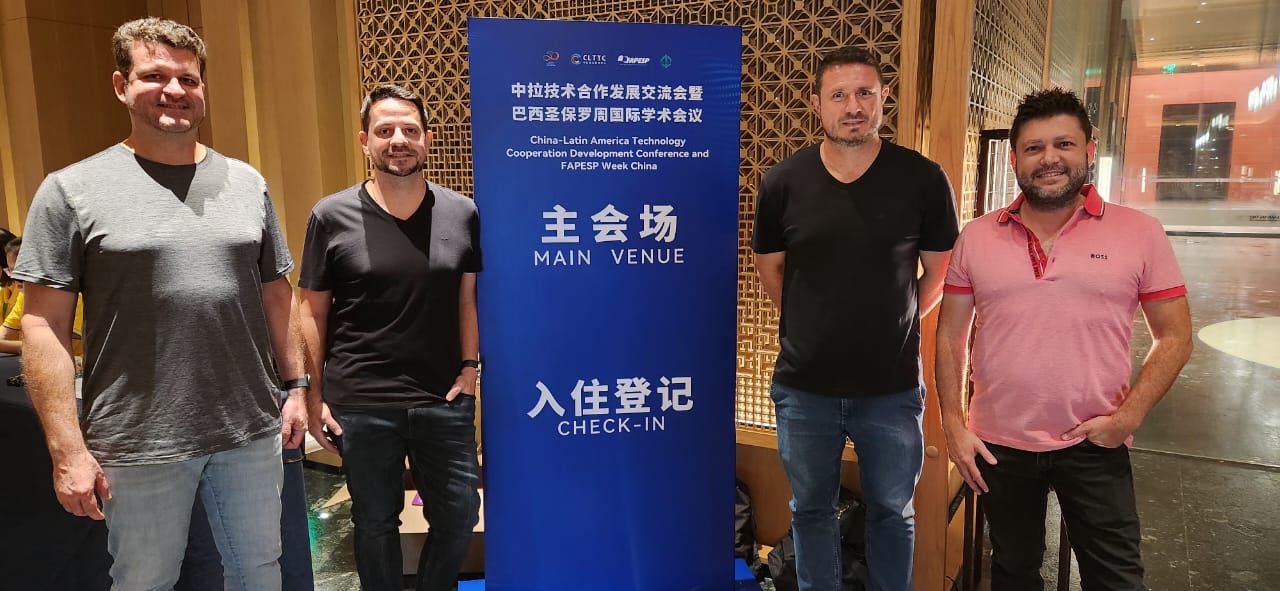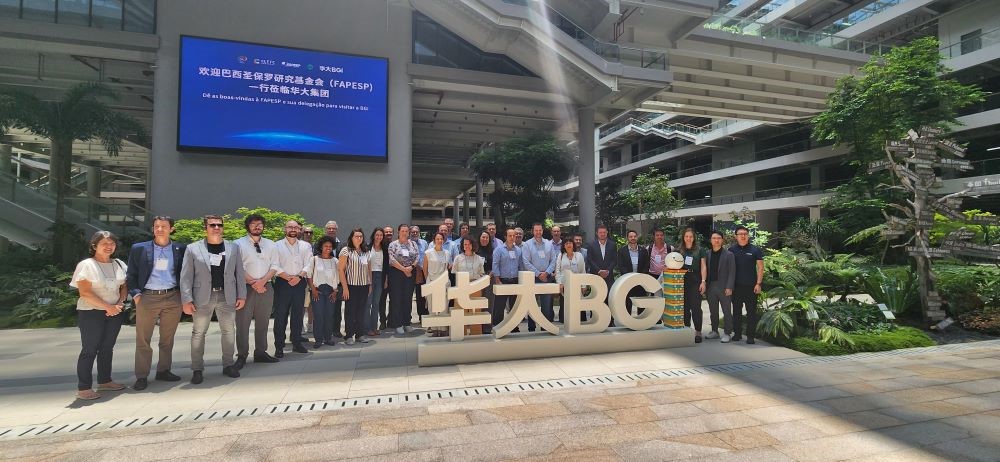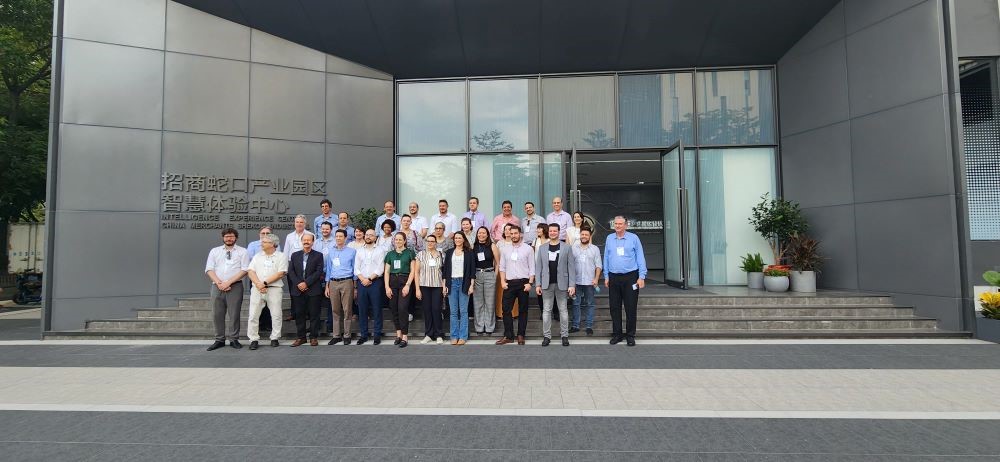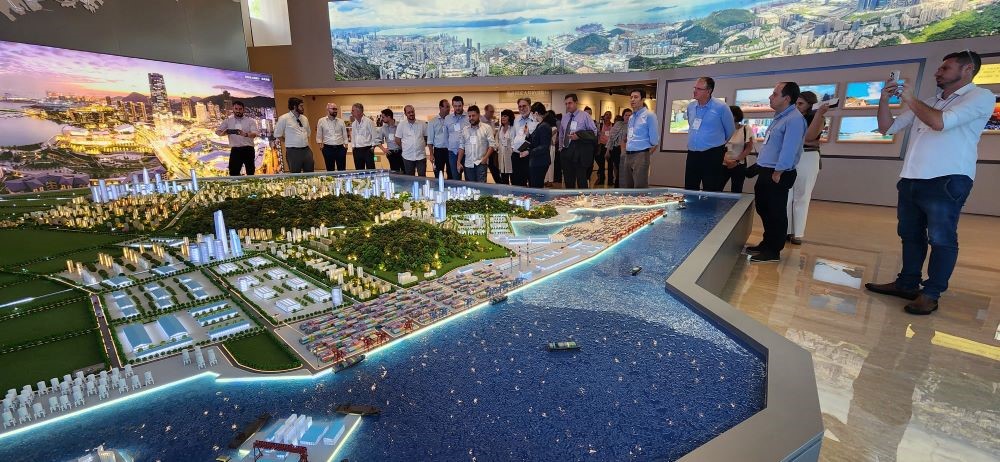
Companies supported by PIPE-FAPESP are looking for possible partnerships in China
02 de julho de 2024By Karina Toledo, from Dongguan | FAPESP Innovative R&D – Representatives of four startups supported by the FAPESP Innovative Research in Small Businesses Program (PIPE) took part last week in FAPESP Week China. Organized in partnership with the China-Lac Technology Transfer Center (CLTTC), the event took place in the cities of Dongguan and Shenzhen, one of the most important innovation centers in the East.
In addition to academic presentations, the program included visits to research laboratories, universities, and major Chinese companies such as BYD (an electric vehicle manufacturer), Huawei (a multinational networking and telecommunications equipment manufacturer), and BGI (a provider of genomic sequencing equipment and services and currently the largest research organization in the field). Around 150 Chinese companies attended the presentations given on June 28-29.
Among the members of the Brazilian delegation is Rodrigo Junqueira, Vice-President of Programs and International Affairs at Ocellott, a company working in the field of aeronautical electrification. “We develop aeronautical batteries, electrical and electronic systems, and electromagnetic discharge protection systems for aircraft. We are focused on developing zero carbon emissions aeronautical systems in an agile and safe manner,” the entrepreneur told Agência FAPESP.
The startup, based in São José dos Campos, in the interior of the state of São Paulo, was one of those selected in a call for proposals launched by FAPESP in April. One of the criteria of the call was that the company had to demonstrate that it had an established internationalization strategy.
Junqueira explains that the aeronautical segment in Brazil is still small and offers few opportunities for growth. For this reason, about three years ago, Ocellott began exploring new markets by opening an office in Daytona Beach, in the United States. “The opportunity to come to FAPESP Week China fit like a glove as it was in line with our internationalization efforts. In addition to the visits included in the event program, we’ve already scheduled a series of meetings with potential suppliers of electronic boards and other components for our systems. And we’ll also be visiting potential clients such as EHang,” he says, referring to the Chinese company that develops and manufactures autonomous aerial vehicles (AAVs) for passenger transport.
Another startup selected in the call was Onkos, based in Ribeirão Preto and dedicated to developing molecular diagnostic tests. With the support of PIPE (projects 15/07590-3, 17/16417-9 and 19/16443-5), the company has developed a technology to analyze thyroid tumors that could help reduce the number of unnecessary surgeries in the SUS – Sistema Único de Saúde, Brazil’s national public health network (read more at: agencia.fapesp.br/44759).
“We have plans to work with researchers or even companies from other countries. This trip has primarily allowed us to better understand how China works, which is a closed market. During the visit to BGI, we had the opportunity to exchange cards and explore possible partnerships. I talked to the chief research scientist and he told me that BGI has collaborations with startups. That was very useful,” comments Marcos Tadeu dos Santos, founder and CEO of Onkos.
For Ronaldo José Durigan Dalio, one of the founders of Ideelab Biotecnologia from Piracicaba, one of the main purposes of the trip was to understand how Chinese agriculture works. “We want to find out what the level of development is, make comparisons with what’s happening in Brazil and map out opportunities – either to bring our own technology here or to bring Chinese technology to Brazil. The goal is to improve agriculture as a whole,” he says.
Dalio said he was particularly interested in the precision agriculture workshop that eventually took place in Shenzhen on Saturday (read more at: agencia.fapesp.br/52047).
The agricultural sector is also the focus of Fernando Nicodemos of NCB – Sistemas Embarcados in São José dos Campos. The company develops equipment to release biological inputs for pest control using drones, as well as software that monitors the process and collects digitalized data in real time. “We use a drone that covers 50 hectares per hour, with precision,” says the entrepreneur.

Rodrigo Junqueira (Oncellot), Marcos Tadeu dos Santos (Onkos), Ronaldo José Durigan Dalio (Ideelab Biotecnologia) and
Fernando Nicodemos (NCB — Sistemas Embarcados) (photo: Karina Toledo/Agência FAPESP)
Trend
According to Ana Paula Yokosawa, FAPESP’s Deputy Manager for Research Collaboration, one of the main focuses of the event in China was to discuss the funding of academic research within companies. “That’s why we came up with the idea of inviting PIPEs to participate in this conversation. How can we in São Paulo make research in companies as competitive as it is in academia?” she asks.
The location could not be more appropriate for this discussion. With approximately 13 million inhabitants, the city of Shenzhen in southern China is home to technology giants such as Tencent, owner of WeChat, and has become known as “the factory of the world.” In just 40 years, it has grown from a small fishing village to a metropolis thanks to the Chinese government’s creation of the Special Economic Zone in the 1980s, which offered companies tax breaks, infrastructure advantages, and benefits for hiring skilled workers. Today, Shenzhen is the main exponent of the so-called “Greater Bay Area” – a megalopolis consisting of nine cities (Shenzhen, Guangzhou, Zhuhai, Foshan, Dongguan, Zhongshan, Jiangmen, Huizhou, and Zhaoqing) and two special administrative regions (Hong Kong and Macau). The region is also known as “China’s Silicon Valley.”
The participation of innovative companies in FAPESP Week is a trend that is here to stay, says Patricia Tedeschi, the Foundation’s Innovation Manager. “The call for proposals launched in April is part of a program to promote the internationalization of startups supported by PIPE, an effort that FAPESP has made to offer new opportunities. The idea is that the same will happen in the next editions of the event, which are scheduled to take place in Spain and Italy,” she said.
More information about FAPESP Week China can be found at: fapesp.br/week/2024/china.

During a visit to the company BGI, a leader in the field of genomics, the Brazilian delegation was welcomed by Chief Research Scientist Xin Jin (first from right to left, in black) and International Director of Public Affairs Guoliang Lu (next to him, in a gray suit) (photo: Karina Toledo/Agência FAPESP)

The FAPESP Week China program included a visit to the China Merchants Shekou International Innovation Center (photo: Karina Toledo/Agência FAPESP)

One of the stops was at the China Merchants History Museum, which tells the story of the conglomerate of Chinese state-owned companies that operate in various areas, mainly in the transportation of goods (photo: Karina Toledo/Agência FAPESP)
